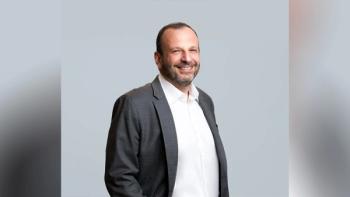
- Pharmaceutical Executive-06-01-2021
- Volume 41
- Issue 6
Betting on Its Base in Virology
How Gilead readied remdesivir for the COVID challenge.
Anu Osinusi, vice president, clinical research, hepatitis, respiratory, and emerging viruses at Gilead Sciences, was alerted to a “mystery pneumonia in China” on Dec. 31, 2019. Osinusi and her research colleagues wondered if this could be a coronavirus and if the antiviral medication remdesivir, which Gilead had invented many years earlier and had tested in preclinical models against other coronaviruses, could be of any help. The drug (marketed as Veklury) gained worldwide attention as an investigational treatment in development for Ebola during the West African outbreak of that disease in 2014–16.
“Once it was confirmed we were dealing with a coronavirus, we swung into action and very quickly started up a development program,” Osinusi told Pharm Exec. “We also had to step up the manufacturing process as it was important to move fast and we couldn’t wait to do things in the sequential way of traditional drug development.”
Running clinical trials in the middle of an unprecedented pandemic for a newly identified disease “is extremely complicated, to say the least,” says Osinusi, but she adds that the Gilead team “wasn’t paralyzed” by the uncertainty of the situation.
The company’s strong footprint in virology has seen it build networks and relationships with experts in academia, public health, and the healthcare sector over several decades; Osinusi and her team were able to quickly leverage this expertise without losing momentum.
When some of the animal data came back suggesting that remdesivir might work against COVID-19, Osinusi was hopeful they were on the right track; by June 2020, trial results showed that a five-day treatment course of remdesivir resulted in significantly greater clinical improvement in hospitalized COVID patients than treatment with standard of care alone. Following an emergency use authorization (EUA) in May 2020, FDA approved remdesivir for the treatment of hospitalized adults and pediatric patients 12 years of age and older weighing at least 88 pounds for COVID-19; and amended the existing EUA for treatment of COVID in hospitalized pediatric patients under 12 years of age or weighing less than 88 pounds. Remdesivir has since been approved or authorized for temporary use as a COVID-19 treatment in around 50 countries worldwide.
However, there are still some unanswered questions and unmet needs to address, says Osinusi.
“We are working to generate efficacy and safety data in additional patient populations with the goal of expanding access to remdesivir to new patient groups such as children, those who are pregnant or have severe kidney injury,” she explains. “We’re also focused on trying to develop therapies that are more convenient for patients with COVID-19 who are not hospitalized, recognizing that an intravenous therapy is not the easiest to administer to outpatients. We know, for example, that physicians and providers would love the option of a therapy that could be self-administered by the patient in their home.”
Many lessons have been learned during the pandemic, says Osinusi, not only in pharma, but in all aspects of the healthcare setting, and there have been a wealth of innovations, from those in diagnostic testing to supply chain and manufacturing processes.
“I’m hoping we take some of what we have learned from those innovations and new partnerships we’ve forged and translate it into drug development going forward, making it more efficient and faster so we can get to the answers quickly but with the same expected high standards and scientific rigor,” she says.
Osinusi is proud of how Gilead “came together as a company,” and of her team’s passion, dedication, and commitment “in the middle of this chaos we were all living in” to move things forward on remdesivir. But hearing back from patients and their families and loved ones remains the greatest motivator, she explains. “Keeping patients first is our North Star and our cultural ethos,” says Osinusi. “At the end of the day, it’s someone’s brother, or sister, mom, or dad that will be the recipient.”
Future generations will talk about and study this pandemic, and “for us to have been a part of it and to have had the chance to make a difference is a unique privilege,” she says. “Being part of the solution—that’s really what keeps us going day and night.”
Julian Upton is Pharm Exec’s European and Online Editor. He can be reached at
Articles in this issue
over 4 years ago
Three Ways to Overcome Any Market Challengeover 4 years ago
Staying the Course: Double Down on Launch Agilityover 4 years ago
Scientific Rigor, Urgent Actionover 4 years ago
Meeting the Crisis Head-Onover 4 years ago
Innovation in High Gearover 4 years ago
Bonds Old and New to the Rescueover 4 years ago
2021 Pharm Exec Top 50 Companiesover 4 years ago
After Blowout 2020, Biotech Worst Performing Sector YTDover 4 years ago
A Steward of ScienceNewsletter
Lead with insight with the Pharmaceutical Executive newsletter, featuring strategic analysis, leadership trends, and market intelligence for biopharma decision-makers.




